OPCW probe team rejects watchdog’s report on Syria 'chemical attack’: WikiLeaks
WikiLeaks has released a new cache of internal documents revealing that members of the Organization for the Prohibition of Chemical Weapons (OPCW), tasked with investigating a suspected “chemical attack” on Syria’s Douma, had protested the watchdog’s final report, saying it misrepresented their conclusions on the incident.
The alleged chemical “attack” on Douma occurred in April last year at a time when the Syrian army was about to win the battle against foreign-backed militants there.
The US and its allies blamed Damascus for the attack, an allegation strongly rejected by the Syrian government, saying the foreign-backed militants with the Western-supported White Helmets have staged the chemical attack in an attempt to frame Damascus.
However, the US, Britain and France launched a coordinated missile strike against sites and research facilities near Damascus and Homs a week later, without waiting for proof that chemical weapons had been used.
RELEASE: Third batch of documents showing doctoring of facts in released version of OPCW chemical weapons report on Syria. Including a memo stating 20 inspectors feel released version “did not reflect the views of the team members that deployed to [Syria]”https://t.co/ndK4sRikNk
— WikiLeaks (@wikileaks) December 15, 2019
According to new documents released by WikiLeaks on Saturday, a scientist, who participated in the OPCW’s fact finding mission (FFM), wrote in a memo addressed to OPCW Director General, Fernando Arias, earlier this year that there were “about 20 inspectors who have expressed concern” over how the watchdog presented its findings on the alleged Syrian chemical attack.
The memo added that the OPCW’s final report, released on March 1, did not reflect the FFM’s findings, presented in their interim report, which is also part of the new document dump.
It further revealed that the final report “does not reflect the views of all the team members that deployed to Douma” to probe the alleged chemical attack, adding that all the team members on the ground in Douma, except for a paramedic, were apparently excluded from drafting the final report.
Instead, the OPCW’s final report was compiled by a separate group that had operated from “Country X,” believed to be Turkey, WikiLeaks’ new documents suggested.
“The consensus within the FFM team was that there were indications of serious inconsistencies in findings… the conclusion seems to have turned completely in the opposite direction. The FFM team members find this confusing, and are concerned to know how this occurred” the memo added.
The FFM’s findings, outlined in their initial report, illustrate some of these “inconsistencies.” For example, the probe team expressed uncertainty about the origin of the cylinders which were purportedly employed to release chlorine. The US and its allies claim that the cylinders were dropped from the sky, pointing to the Syrian government as the culprit.
Nevertheless, the original interim report by the FFM had said that there was no strong evidence to support the dropped-from-sky theory. In fact, a follow-up investigation into the incident concluded that it was more likely that the cylinders “were manually placed… rather than being delivered from aircraft.”
Last month, WikiLeaks released an email sent by a member of the OPCW in which its author accused the watchdog of doctoring a report on the Douma attack.
“Many of the facts and observations outlined in the full version are inextricably interconnected and, by selectively omitting certain ones, an unintended bias has been introduced into the report, undermining its credibility,” said a member of the FFM in the email, dated June 22, 2018.
Earlier this year, an unreleased OPCW engineering report was also leaked to the Working Group on Syria, Propaganda and Media that refuted militants’ claims that the cylinders that the engineering team examined were dropped out of a Syrian government aircraft.
Syria surrendered its entire chemical stockpile in 2013 to a mission led by the OPCW and the United Nations.
Several reports have previously suggested the use of chlorine against civilians by anti-Damascus militants.
'Capitulation': Israeli officials and media concede Gaza defeat as truce unfolds
'Gaza has won': Social media users react to ceasefire with mix of relief, joy
Iran seeks South Korea’s assistance for AI, fiber-optic projects
VIDEO | Iran's 'Eqtedar' (Power) maneuver
Israel hits HTS military target in Syria for 1st time since fall of Assad
VIDEO | Press TV's news headlines
Israel has slaughtered 13,000 students in Gaza, West Bank
VIDEO | More Zionist than Zionists: Biden’s legacy to be defined by Gaza genocide



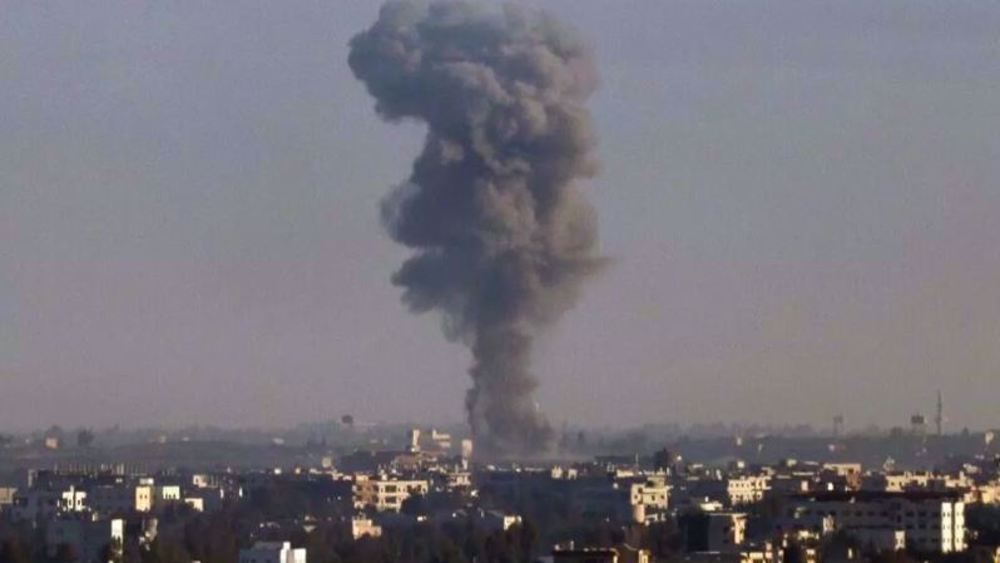

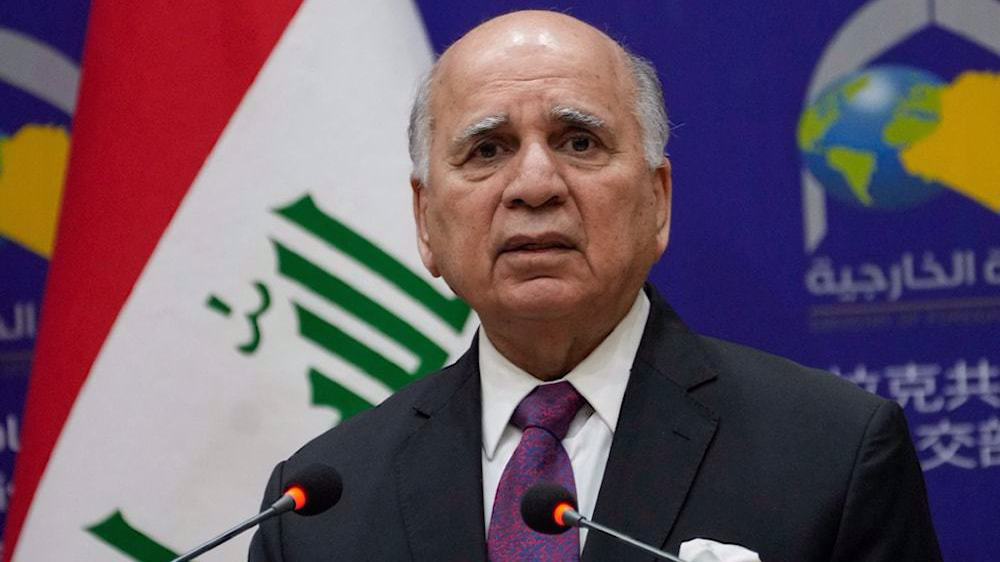



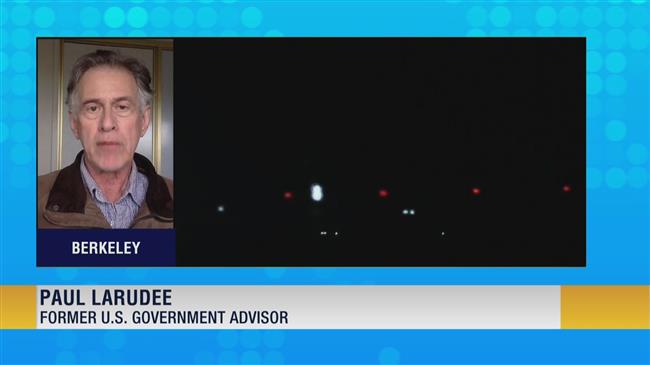

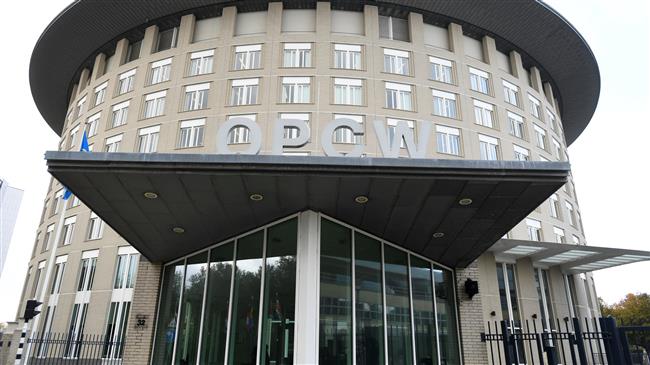
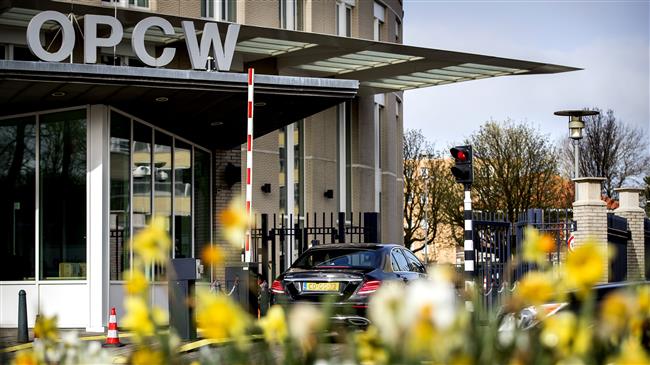



 This makes it easy to access the Press TV website
This makes it easy to access the Press TV website